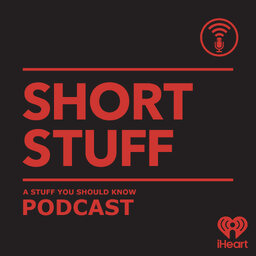The Assassination of Martin Luther King, Jr. Part II
A manhunt is launched for MLK’s killer, James Earl Ray. After his capture he pleads guilty. With no trial the world won’t hear the facts of the case laid out in court, giving rise to decades of conspiracy theories that even the King family came to believe.
In 1 playlist(s)
Stuff You Should Know
If you've ever wanted to know about champagne, satanism, the Stonewall Uprising, chaos theory, LSD, …Social links
Follow podcast
Recent clips

Selects: How Free Range Parenting Works
51:15

How the Flexner Report Changed Medicine
37:50

Short Stuff: Safety Coffins
14:00
 Stuff You Should Know
Stuff You Should Know